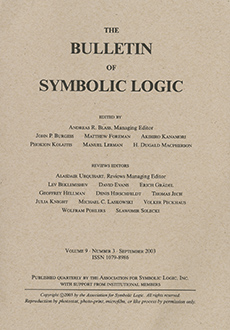Abstract
The construction of a systematic philosophical foundation for logic is a notoriously difficult problem. In Part One I suggest that the problem is in large part methodological, having to do with the common philosophical conception of “providing a foundation”. I offer an alternative to the common methodology which combines a strong foundational requirement (veridical justification) with the use of non-traditional, holistic tools to achieve this result. In Part Two I delineate an outline of a foundation for logic, employing the new methodology. The outline is based on an investigation of why logic requires a veridical justification, i.e., a justification which involves the world and not just the mind, and what features or aspect of the world logic is grounded in. Logic, the investigation suggests, is grounded in the formal aspect of reality, and the outline proposes an account of this aspect, the way it both constrains and enables logic (gives rise to logical truths and consequences), logic's role in our overall system of knowledge, the relation between logic and mathematics, the normativity of logic, the characteristic traits of logic, and error and revision in logic.
Citation
Gila Sher. "The foundational problem of logic." Bull. Symbolic Logic 19 (2) 145 - 198, June 2013. https://doi.org/10.2178/bsl.1902010





